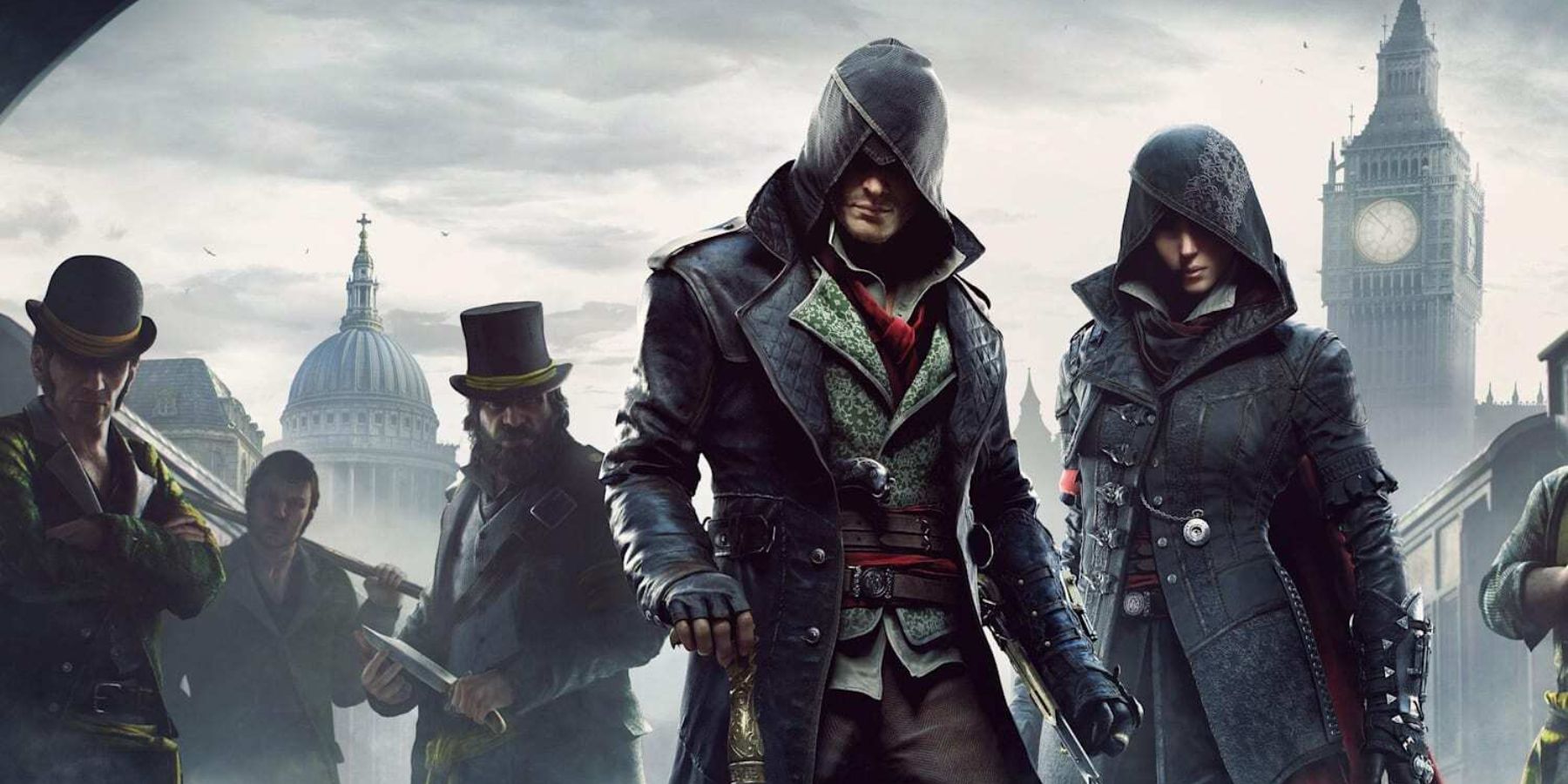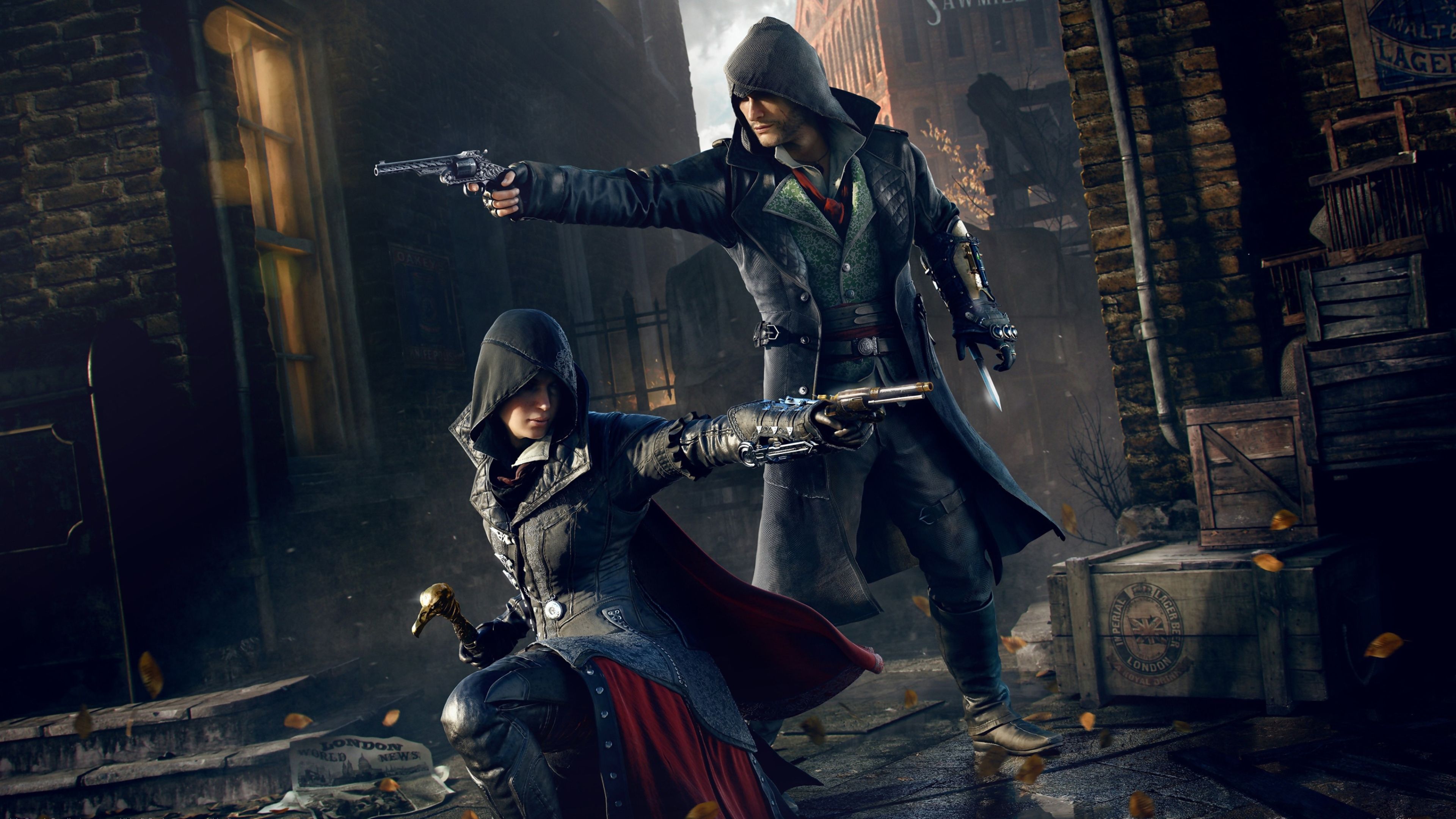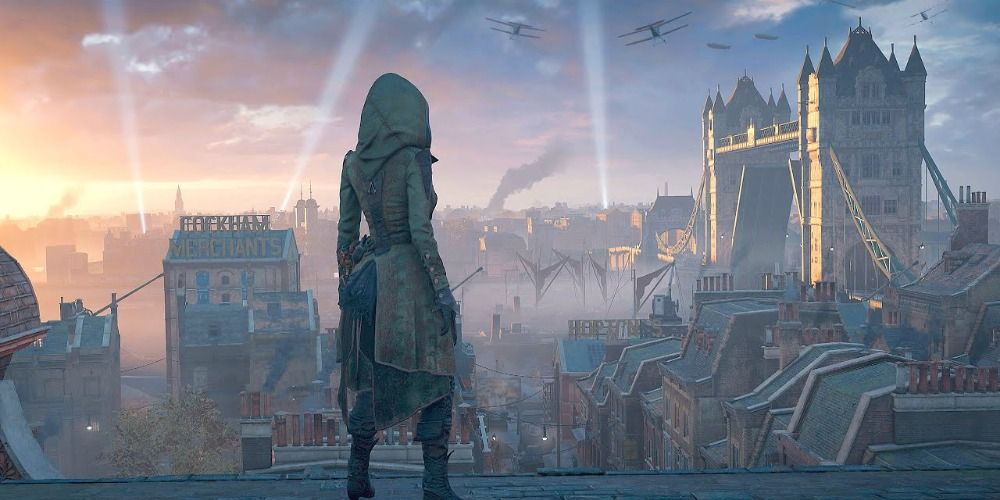
Ubisoft rebooted the Assassin's Creed series with 2017's Assassin's Creed Origins, but the previous installment, Assassin's Creed Syndicate, proved that it wasn't necessary. Although Assassin's Creed has seen two further acclaimed entries since the release of Origins in Assassin's Creed Odyssey and Assassin's Creed Valhalla, the decision to part with the series' traditional formula and embrace more typical RPG mechanics has diluted its identity. Assassin's Creed was always outlandish in places, but the newer games have fully embraced mythological elements and leveled enemies, detracting from the series' historical focus, and making combat feel less fluid as a result.
The decision to revamp Assassin's Creed came in the wake of Assassin's Creed Unity's bug-filled launch. While positively received by critics, the series' then full next-gen debut was littered with bugs and was criticized for its unambitious stealth gameplay and narrative presentation, and suffered a backlash from fans accordingly. Unity was not a bad game by any means, but there was a sense that franchise fatigue was setting in, and that the series could no longer follow an annualized release schedule.
At the same time as this was happening, Ubisoft had been developing another Assassin's Creed game made in Unity's style set in Victorian London. The game ended up being Assassin's Creed Syndicate, and it may possibly be the series' most underrated installment. Players took control of Jacob and Evie Frye as they worked to undermine the Templars at the height of the British Empire, and both ended up being charismatic characters in their own right, boasting unique fighting styles and killer looks. Ubisoft's rendition of Victorian London was also superbly realized, matching and exceeding Unity's interpretation of 18th century Paris with one of the most authentic open-worlds the franchise has seen. Syndicate is a testament to the idea that the decision to revamp the Assassin's Creed formula in Origins was both a drastic and unnecessary step, and that the old-style Assassin's Creeds still had plenty more to offer.

Assassin's Creed Unity is actually pretty good, but it's not without its flaws. The decision to go with English accents to depict revolutionary France undermined its historical authenticity, while the story itself felt like a major downgrade compared to Assassin's Creed 4: Black Flag. Still, it did have a lot going for it, including the series' best combat, a stunning open-world and some great customization elements. Syndicate made sure to address Unity's problems and innovate in the right places, making stealth enjoyable again and building on the game's traversal and combat mechanics in a compelling way by introducing a zip-line so that players could reach taller buildings more easily, and even more weapons for them to use in stealth and combat.
Of course, the fact that Syndicate was set in London easily addressed Unity's voice acting issues. The menagerie of English accents feel more at home in Victorian England than they did in Assassin's Creed Unity's Paris, and the main cast all do a great job of making each character feel authentic and memorable. The Frye twins are far better as dual protagonists than Arno was in the previous entry, with Jacob conveying boyish charms aplenty and Evie being the more mature of the two, and they're backed up by a great supporting cast of characters, including Henry Green as the leader of the London branch of Assassins. The game also has a lot of fun incorporating real-life historical figures, with players getting to meet Karl Marx, Charles Dickens, and even a young Sir Arthur Conan Doyle in their travels. On top of that, Assassin's Creed Syndicate's DLC featured Jack the Ripper as an enemy to defeat, set over a decade after the events of the main story.
It's still Jacob and Evie who are at the core of the story though, and the game allows players to switch between them at will. As Jacob, players will mostly spend their time engaging in Gangs of New York-style confrontations with London's criminal underworld, as they build up their own gang to take on those backed by the local Templars. Evie's missions, conversely, require a more delicate touch, with the focus very much being on stealth and infiltration. It makes for a nice contrast from Jacob's more gung-ho approach, with the pair's contrasting personalities further adding to Syndicate's unique story.

Unfortunately though, despite representing a return to form for the franchise, Assassin's Creed: Syndicate underperformed in terms of copies sold. Ubisoft blamed Syndicate’s poor sales on Unity, although franchise fatigue was possibly a factor too. The Assassin's Creed series had adopted an annualized release schedule following the release of Assassin's Creed 2 in 2009, and in 2014 alone, there were two major installments in the franchise, with Assassin's Creed Rogue being restricted to last-gen consoles, and Unity debuting exclusively on the PlayStation 4, Xbox One and PC. Factor in significant DLC expansions and handheld spin-offs with each year - as well as four consecutive entries utilizing a similar 18th-century setting - and it's understandable as to why some players may have felt like Syndicate was an Assassin's Creed game they could probably skip.
Even though Syndicate received a largely positive response from critics and mounted something of a comeback on the sales charts in the years afterward, it never matched the figures recorded by Assassin's Creed Unity. Assassin's Creed Origins, Odyssey, and Valhalla, on the other hand, were all able to at least match Unity's figures. This came after the franchise took a two-year break, and while Origins almost certainly reinvigorated the series with its Egyptian setting and overhauled gameplay, giving players time off from Assassin's Creed understandably helped its cause a great deal.

The new Assassin's Creed games are still enjoyable, but the series has lost some of its more distinctive elements with its switch to the RPG genre. Combat is less seamless and more methodical, with players no longer able to swiftly move from enemy to enemy in a series of well-executed kill-moves unless they're in stealth. One could argue that the old system lacked challenge, and that the changes introduced by AC Valhalla and the newer AC games make for a more thoughtful experience, but the old one feels more distinctly Assassin's Creed than the other. Factor in the addition of loot elements and things like level scaling - the former of which was popularized by games like Destiny and Ubisoft's own The Division - and it very much feels as though Assassin's Creed is less unique than it once was.
This is a criticism that has been leveled at multiple Ubisoft franchises in recent years, with many of the publisher's open-world titles like Far Cry and Watch Dogs sharing multiple gameplay elements between them. Ubisoft's Tom Clancy's games in particular have undergone a drastic change over the last decade, ditching its tactical-shooter roots to accommodate more open-world elements, as well as newer gaming trends such as battle royale. Assassin's Creed may not boast as radical a shift as that series, but the gameplay and narrative changes introduced since Origins have made the series less distinct than it once was, with neither Odyssey nor Valhalla preserving the aesthetic of the older entries.
All video game franchises have to innovate, but the considerable change introduced to Assassin's Creed in Origins feels like an overstep, given Assassin's Creed Syndicate showed the old formula still had plenty of potential. The series has yielded great results by adopting more RPG elements, and has even reintroduced some features of the old games in recent entries, with Assassin's Creed Valhalla including stealth as a core component of gameplay. However, Syndicate brought improvements of its own and lacked the bugs that had blighted Unity at launch. Had the game been released at a later date, it's possible that it could've avoided being caught in its predecessor's wreckage. As it stands though, Syndicate serves as a reminder that the old Assassin's Creed games still had plenty of life left to give, and that the series' new direction, although well-received, wasn't necessary.
from ScreenRant - Feed https://ift.tt/3BYCaeQ

0 Comments